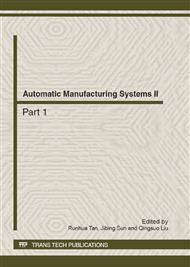p.1376
p.1380
p.1384
p.1390
p.1394
p.1398
p.1403
p.1407
p.1413
Application of Neural Network Based on Genetic Algorithm to Predict Hypotension Events during Spinal Anesthesia
Abstract:
An accurate and efficient artificial neural network (ANN) based genetic algorithm (GA) is presented for predicting hypotension during general anesthesia. The genetic algorithm global optimization characteristics are used to optimize the BP neural network weights, and learning samples are trained and modeled by BP neural network with optimal parameters. The simulation experiment is carried out with MATLAB. The result indicated that the model forecasting results are close with the actual results and meet the accuracy requirement to General Anesthesia.
Info:
Periodical:
Pages:
1394-1397
Citation:
Online since:
June 2012
Authors:
Keywords:
Price:
Сopyright:
© 2012 Trans Tech Publications Ltd. All Rights Reserved
Share:
Citation:


